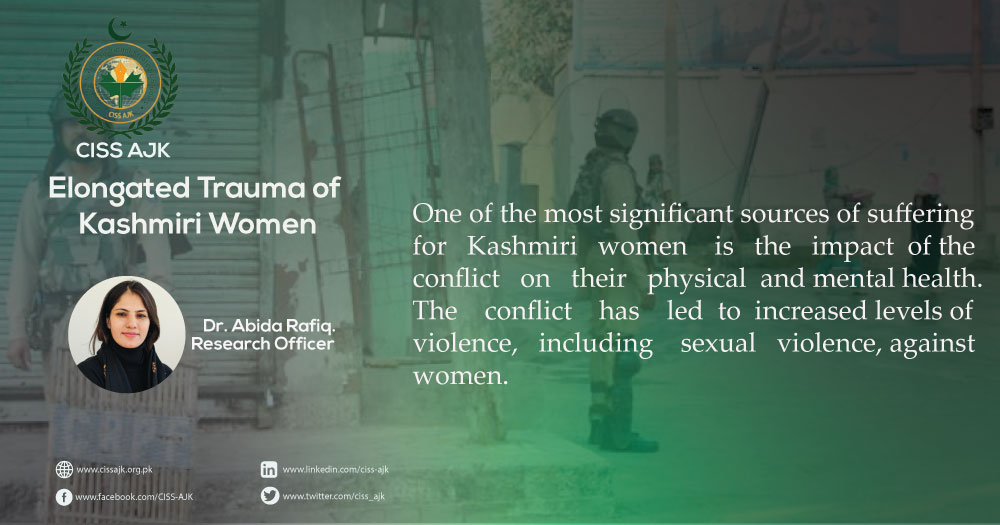The Kashmiri conflict, which has been ongoing for decades, has had a significant impact on the lives of Kashmiri women, who have suffered in multiple ways. The conflict in Kashmir has been ongoing for decades, and it has had a profound impact on the lives of the people living there, particularly women. Kashmiri women have faced numerous challenges and trauma due to the conflict, including violence, displacement, and the loss of loved ones.
One of the most significant sources of suffering for Kashmiri women is the impact of the conflict on their physical and mental health. The conflict has led to increased levels of violence, including sexual violence, against women. Many women have been raped, sexually assaulted, or forced into prostitution by armed groups, including security forces. The trauma of these experiences can have long-lasting effects on their mental health and well-being. These acts of violence have had devastating effects on women’s physical and psychological health, as well as their social and economic well-being.
Kashmiri women have also been subjected to various forms of social and economic discrimination. They often face limited access to education and employment opportunities, as well as restricted mobility due to the conflict. In addition, many women have lost their husbands, fathers, or brothers in the conflict, leaving them as the sole breadwinners for their families.
In addition to gender-based violence, Kashmiri women have also been impacted by the forced displacement of their families due to the conflict. Many women have been forced to flee their homes and live in refugee camps or with relatives in other parts of India or Pakistan. This displacement has disrupted their lives and made it difficult for them to access basic services such as healthcare and education.
The conflict has also had a significant impact on the education of Kashmiri women. Schools and colleges have been shut down for extended periods due to the conflict, and many girls have been forced to drop out due to the security situation. This has limited their opportunities for personal and professional growth.
In addition to these challenges, Kashmiri women also face a lack of political representation. Despite the fact that women make up a significant proportion of the population in Kashmir, they are severely underrepresented in political institutions. This has limited their ability to participate in decision-making processes that affect their lives.
The conflict has also had a significant impact on the mental health of Kashmiri women. Many women have lost loved ones in the conflict, and the constant threat of violence and instability has created a climate of fear and anxiety. Women have reported experiencing symptoms of depression, anxiety, and post-traumatic stress disorder (PTSD) as a result of the conflict.
Therefore, the suffering of Kashmiri women is a tragic consequence of the ongoing conflict in the region. It is important that efforts are made to address these issues and provide support for women who have been impacted by the conflict. the conflict in Kashmir has had a significant and lasting impact on the lives of Kashmiri women. These women have experienced violence, displacement, loss, and trauma, which have had profound effects on their physical, psychological, and economic well-being. It is essential to address these challenges and to provide support and resources to help Kashmiri women rebuild their lives and communities.

